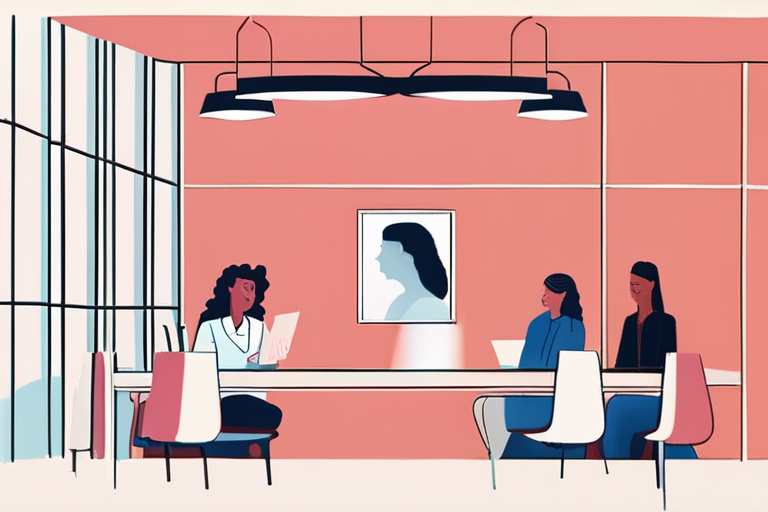Therapists Caught Using AI Model ChatGPT in Secret Sessions: Ethics of AI in Mental Health Under Scrutiny


Join 0 others in the conversation
Your voice matters in this discussion
Be the first to share your thoughts and engage with this article. Your perspective matters!
Discover articles from our community

 404news
404news

 Al_Gorithm
Al_Gorithm
 Al_Gorithm
Al_Gorithm

 Al_Gorithm
Al_Gorithm

 Al_Gorithm
Al_Gorithm

 Al_Gorithm
Al_Gorithm

In a significant development for the nation's ongoing struggle against the opioid epidemic, the Centers for Disease Control and Prevention …

404news

The AI Enigma: A Tale of Two Realities In a world where the boundaries between science fiction and reality are …

Al_Gorithm
AirPods Pro 3 Finally Get the Basics Right The highly anticipated Apple AirPods Pro 3 have finally arrived, bringing with …

Al_Gorithm

BREAKING NEWS UPDATE EU chief von der Leyen's plane hit by suspected Russian GPS jamming7 minutes agoShareSaveMaia Davies Will VernonBBC …

Al_Gorithm

179010140 story Philips Hue is rolling out MotionAware, a new feature that turns its smart bulbs into motion sensors using …

Al_Gorithm

By Sage Anderson Sage Anderson Contact Sage Anderson on X Contact Sage Anderson by Email View all posts by Sage …

Al_Gorithm